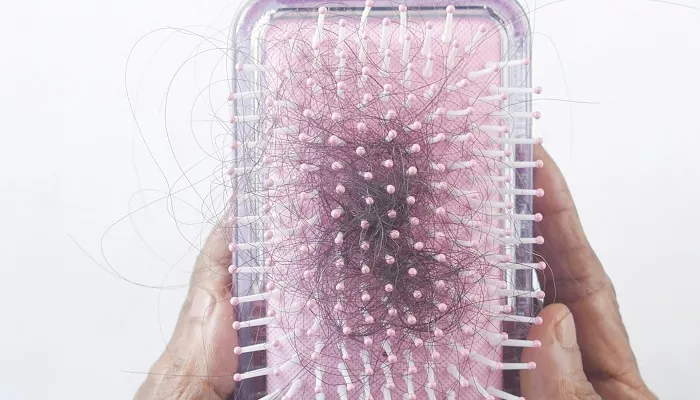Hair loss in women is often dismissed as a cosmetic concern, but experts warn it can be a sign of deeper health issues—particularly hormonal imbalances that may affect fertility. If you’re noticing more strands on your pillow or brush than usual, it may be time to look beyond surface-level solutions.
In an interview with HT Lifestyle, Dr. Rashmi Niphadkar, Fertility Specialist at Nova IVF Fertility in Baner, Pune, emphasized the link between hair loss and reproductive health. “In many cases, hair loss is a sign of hormonal imbalance, which can also have an impact on a woman’s fertility,” she said. “Women should report hair loss to a specialist without delay.”
Understanding the Hormonal Connection
Hormones play a vital role in maintaining both hair health and reproductive function. Dr. Niphadkar explained that imbalances involving androgens, estrogen, thyroid hormones, or prolactin can disrupt the natural hair growth cycle.
Conditions like Polycystic Ovary Syndrome (PCOS) are particularly telling. Women with PCOS may experience symptoms such as irregular periods, weight gain, and male-pattern hair thinning—all signs of elevated androgen levels. “PCOS is also a leading cause of infertility and requires timely intervention,” Dr. Niphadkar noted.
Thyroid disorders—both hypothyroidism and hyperthyroidism—can also lead to hair thinning, fatigue, and menstrual irregularities. Additionally, elevated prolactin levels, a hormone tied to milk production, may interfere with ovulation and contribute to hair loss.
Stress, sudden weight changes, nutritional deficiencies, and certain medications can further disrupt hormonal balance, leading to both hair loss and fertility issues.
Diagnosis and Treatment
Early diagnosis is key. Dr. Niphadkar recommends a combination of blood tests, hormonal assessments, and ultrasounds to identify the underlying cause. “It is essential to follow expert guidance and avoid self-medication or unverified treatments,” she cautioned.
Doctor-Recommended Hair Health Tips
To address hair loss linked to hormonal imbalance, Dr. Niphadkar suggests the following evidence-based hair health advice:
Eat a balanced diet rich in essential vitamins and minerals that support hormone regulation and healthy hair growth.
Maintain a healthy weight, as obesity can contribute to hormonal fluctuations.
Practice stress management through yoga, meditation, or mindfulness exercises to stabilize hormone levels.
“Ignoring hair loss is not an option,” Dr. Niphadkar warned. “It may be a visible sign of an internal imbalance that affects fertility. Timely medical intervention can improve both your hair health and reproductive outcomes.”
If you’re experiencing persistent or unusual hair loss, don’t overlook it. Seeking medical advice could be a critical step in safeguarding both your hair and fertility.
Related Topics:
- Doctors Warn of Hair Growth Cream’s Rare Side Effect
- Top-Rated Biotin Duo Revives Thinning Hair for Just $25
- How a £35 Hair Serum Helped Regrow My Hairline


